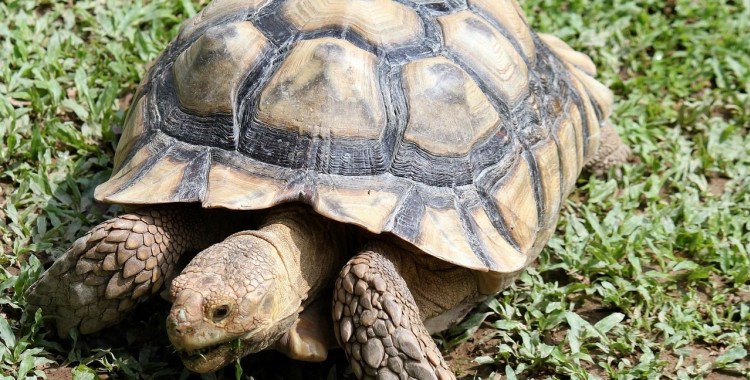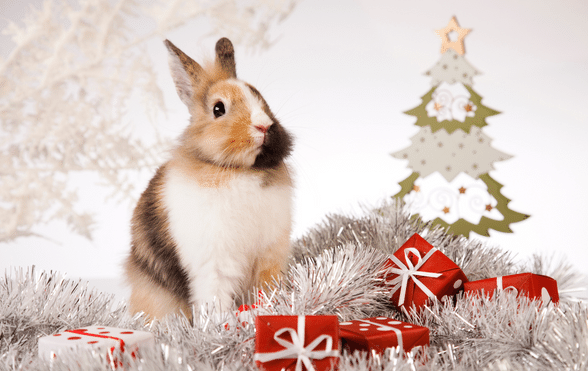Christmas is a great time for buying the people you love something they’ll love. And often pets can top the list of the most ‘wanted pressie’. However, although your chosen pet may be super appealing at the time, you need to make sure that after Christmas the glamour doesn’t wear off.
The best thing you can do is lots of research. What seems appealing in December, may suddenly turn into a lot of unexpected hard work by the end of January.
Sadly, some pet owners are so desperate they resort to abandoning their pets. The RSPCA have recently seen a significant increase in the number of exotics they’ve had to rescue, as owners struggle to mimic the habitat that the exotics live in. Royal Pythons; Bearded Dragons; Cornsnakes; Terrapins and Leopard geckos are the top 5 most rescued pets by the RSPCA.
So what are the kind of things you should consider before you make that purchase?
Housing
- What kind of housing will your pet need? If it’s a lizard you may well need a heat lamp, a UV lamp, a thermometer, hide and suitable substrate. The vivarium will also need to be big enough to accommodate your growing pet. You’ll also need to ensure there is a temperature gradient within the vivarium, to replicate the lizard’s natural environment.
- If you’re purchasing a tortoise, you’ll need to provide lighting and heating, UV lighting, a thermometer and suitable substrate. You’ll also need to buy a tortoise table, or a vivarium. It’s essential that you provide the correct husbandry for your lizard or tortoise otherwise it could lead to significant health problems.
- A bird will need a suitable sized cage, plenty of toys and suitable food. Your home itself should be safe and secure, so that when your parrot is out of his cage, he can’t injure himself or escape outside.
- Small mammals will require a suitable sized cage, a ‘run’ and suitable food.
Fact: Did you know that nearly 55% of exotic pet owners were surprised at the level of care required for their pet? (Based on a study conducted by ExoticDirect in our 2014 “Fur Free Doesn’t Mean Care Free” report). Why not get a quote?
Get a quote
Alternatively you can call us on 0345 982 5505
Food
- Lizards: These pets love their live food! Are you prepared to pick out locusts and meal worms for your lizard? If not, these pets might not be quite right for you. We’ve got a couple of articles which offer dietary advice for Bearded Dragons and Leopard Geckos. Why not read: bearded dragon’s food advice and What should leopard gecko’s eat.
- You should ensure you know where you can buy good quality food from. Poor quality live food can lead to such issues as parasites – where the parasite lives inside the live food, and is then transferred to your lizard when eaten. You should also ensure your provide plenty of calcium in your lizards diet to prevent metabolic bone disease.
- Parrots also have specific food requirements. You can offer fresh food and pellets; fresh food with a seed based diet or an alternation of both with fresh food added daily. You can find out more about these in our article What your parrot can eat, food and diet ideas.
- Tortoises mostly eat herbage. A mixed weed diet is best for a Mediterranean tortoise, avoiding harmful weeds such as buttercups. Dandelions are particularly good for tortoises. You can also feed your tortoise vegetables. Like with lizards, you should provide plenty of calcium in your tortoise’s diet to prevent metabolic bone disease.
- Small mammals: If you’re purchasing a guinea pig or rabbit you’ll need to provide plenty of hay and/or grass. This is because their teeth continually grow, and chewing hay helps to grind down their teeth. Dental issues are extremely common in guinea pigs and rabbits, and can lead to a lot of pain for them, and a huge vet bill for you. Hay also helps to maintain a heathy digestion.
- Guinea pigs also need lots of vitamin C in their diet. This is because like us, their bodies don’t naturally produce it – they can only get it from their diet. Without lots of vitamin C, they can develop Scurvy – which isn’t nice! Our article What can guinea pigs eat? offers advice.

Vet fees and insurance
- With the best care in the world, exotic pets can and do get ill. Vet fees can often quickly escalate. Especially if your pet is referred from a normal ‘cat and dog’ treating vet, to an exotic vet.
- You should consider getting insurance in order to cover unexpected vet bills. At ExoticDirect, we can cover a range of exotic pets for vet fees, death and theft. Cover can range from £1,000 in vet fees for lizards, £2,500 for vet fees in tortoises, up to £5,000 in vet fees for parrots. For small mammals we only offer ‘vet fee only’ policies.
Working out your budget? Find out just how much pet insurance costs, and what you’re covered for.
Alternatively you can call us on 0345 982 5505
House proofing
Does your house need to be house proofed? And where will you keep the enclosure?
Vivarium’s can be large, and you may need to move a room around in order to accommodate it.
Parrots have very specific environment requirements. They have a very sensitive respiratory system, and common household scents can be toxic for birds. The fumes from burnt Teflon (found on non stick cooking equipment) can be fatal. Additionally, you need to ensure that there are no items in the house that can cause your parrot to get injured or choke. Finally, you need to ensure safety – windows and doors should be kept closed if your parrot is out of his cage.
Going on holiday?
You’ll need to think about who’ll care for your pet if you go away. Will your neighbour or friend be happy to care for your lizard, giving him live food regularly?
Will your parrot be happy with you going away? Parrots are very intelligent and emotional birds, and become very attached to their owners. If you’re going away on holiday, it’s a risk that your parrot could become very distressed in your absence. This could lead to significant health issues – such as feather plucking.
Will your friends and family be scared of your pet?
Not so much of an issue if you’re opting for a cute rabbit or guinea pig. But if you’re choosing a parrot or a lizard, visitors could become nervous. A rogue parrot flying around the house can be scary. And lizards, although adorable and fascinating, could make some people nervous if not kept in their vivarium.
All pets love a bit of love, time and attention
- Lizards: If you already own one of these, you’ll know how much time they can take up. If it’s not showing them affection, it’s ensuring their housing is at the right temperature, their food requirements are met, and that they are clean, and free from any sign of illness.
- Parrots: These are probably one of the most demanding pets emotionally. African Grey’s for example can have the mental age of a 5 year old child. Parrots can get bored, distressed, excited, and attach to their owner. They are often a full time job in themselves, as they require a lot of stimulation.
- Small mammals: In the case of rabbits a hutch is just not a large enough space for the pet to roam. You should ensure that your rabbit is let out of his cage for a large part of his day – a ‘run’ is a great place for this. Before you buy your rabbit, think about how you’re going to provide him with enough exercise.
Finally, once you’ve done all your research, you’ll be armed with the right information to provide your new pet with a loving home.
Why not click the button and get a quote?

